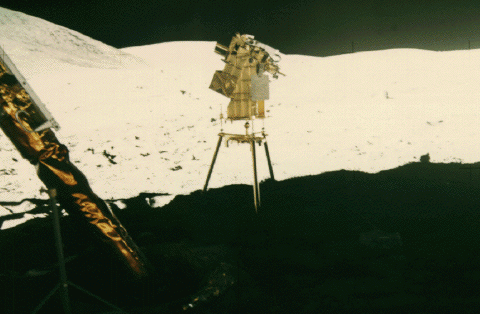The First Lunar Observatory

Explanation:
The first and only lunar astronomical observatory was deployed by the
Apollo 16
crew in 1972. The
Far
Ultraviolet Camera / Spectrograph used a
3-inch diameter telescope to photograph the
Earth,
various
nebulae,
star clusters, and the
Large Magellanic Cloud.
The camera is seen above placed in the shadow of the
Lunar Module
so it would not overheat. A leg of the Lunar Module enters the picture
from the left. The camera took pictures in
ultraviolet light
which would normally be blocked by the
Earth's atmosphere.
The Far Ultraviolet Camera was created by George Carruthers
(
NRL),
had a field of view of 20 degrees, and could detect stars having
visual
magnitude brighter than 11. 178 images were recorded in a film
cartridge which was returned to
Earth. The observatory stands on the
Moon even today.
Authors & editors:
Robert Nemiroff
(MTU) &
Jerry Bonnell
(USRA)
NASA Web Site Statements, Warnings,
and Disclaimers
NASA Official: Jay Norris.
Specific
rights apply.
A service of:
LHEA at
NASA /
GSFC
& Michigan Tech. U.

